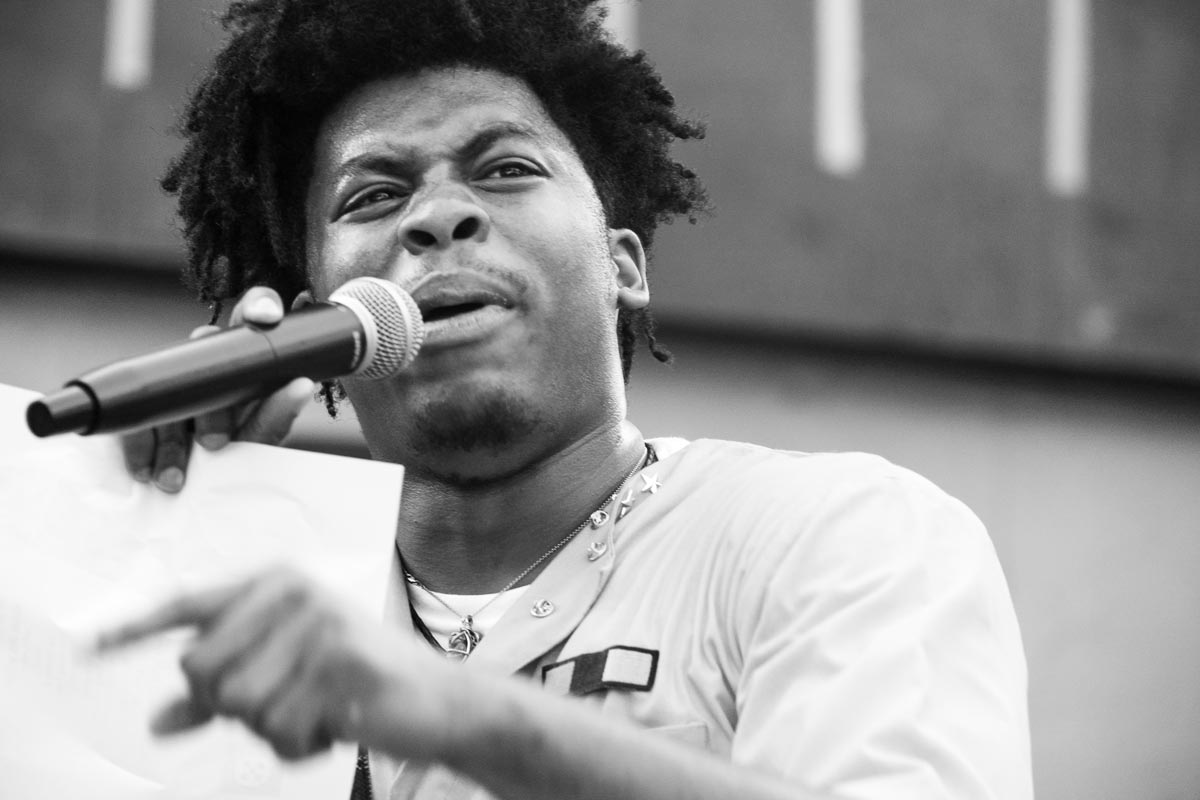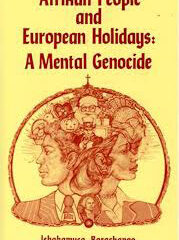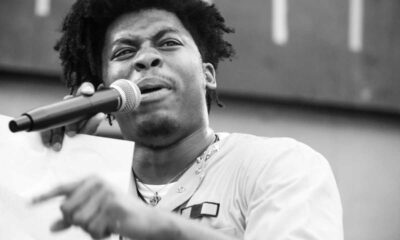Editorial
Tired of Fighting

By Nehemi’EL Ibrihim-Simms
On June 3rd 2023, Amatu Nur Ibrihim, my maternal grandmother, passed away. She was 66 years old. It is the truth to say that although I was raised in a two-parent household, and around both sides of my family, it was Amatu Nur Ibrihim who has impacted me in the most significant ways.
Sunday mornings are called to mind. I can still hear William Hart of the Delfonics sing “La La Means I Love You” while we clean the refrigerator and she tells the house her favorite story about seeing Malcolm X on his soap box while running errands for Daddy in early 1960s Harlem. Older people are like that; they tell the same stories.
“Awww baby, he was so handsome. Tall, powerful brother. People were against him then. Everyone loves him now but back then black people were afraid of him.”
We were separated when I was 8 years old. My parents and she couldn’t see eye-to-eye and, as usual, when adults argue, the children suffer. Maybe the disagreement was over money or some adult stuff like that. The point is, I didn’t see or hear from my grandmother (or hear about her) for 10 years. No one spoke of her. In that time span, three of my siblings were born, and so they had no memory of her. I felt isolated in my missing her. We reconnected in 2018. I was eighteen.
We reconnected in Atlantic City, where she lived. I can remember feeling so much anger at my parents because she lived only a few miles away. She was almost the same. Still very warm and inviting. Still with that uplifting sense of humor. But I could feel something was off with her fire. Soon I came to identify the source. There was one glaring difference: half of her right foot was gone. She walked with a limp and frequently groaned in pain when getting up from a seat or sitting down.
On our first day back together, I found out that she was dealing with aggressive diabetes, which explained her foot and the ramifications of a 20-year-old car accident. She explained that she was addicted to the medicine that the doctors had prescribed to her and that she frequently suffered from debilitating headaches. She told me that she had many regrets in her life, one of which was leaving me, because she had not been there to teach me what she believed I needed to know.
What’s more, she revealed to me the truth of her condition: she was dying.
“I’m tired, son,” she said.
“Tired of what, Umi?”
“Tired of fighting. I have been fighting for 66 years. Fighting my doctors. Fighting my past. Fighting white supremacy. Just overall tired, baby. I had a dream the other night. Daddy and Grandma Ruthie came and asked me if I was ready,” staring at me, she told me in an eerily excited tone.
Suddenly she looked away. “I told them I was,” I could feel her shame. No fighter wants to admit defeat.
She said this as if a dream had sealed her fate.
Then she said, “Can you imagine working 15 hours a day, then coming home and stepping over drug addicts strewn in the hallways of your building just to get to the roof to get some fresh air? Can you imagine seeing a whole generation of people who inspired you, murdered? Murdered just for wanting to be human.”
I understood her because I lived in Harlem and can remember feeling the same desperation. I could remember the confusion of taking the 3 train to school and seeing all manner of folks getting on the train at 34th Street, 42nd Street, and Wall Street begging for help. I could not imagine feeling that for 66 years. No pity came from me for Umi. At that moment I gave her my blessing.
When the news of her death came I was not surprised, but I still shed tears. Tears for her, and me, because I knew my fate was sealed. Come prosperity or destitution, come admiration or hatred, I would spend the next six decades fighting. And waiting for Amatu Nur, Daddy Dewey, and Grandma Ruthie to come to me and ask me if I am ready.





